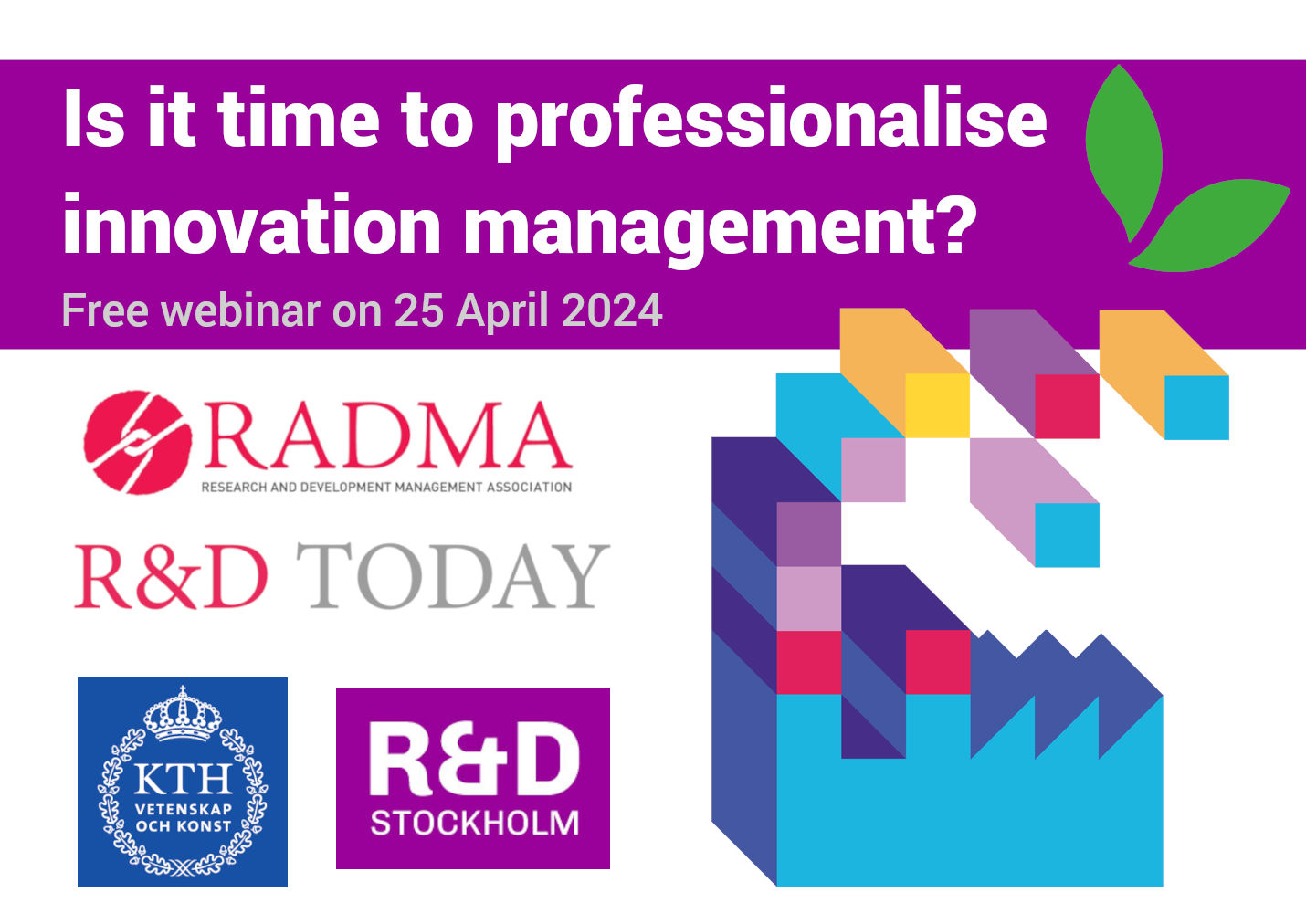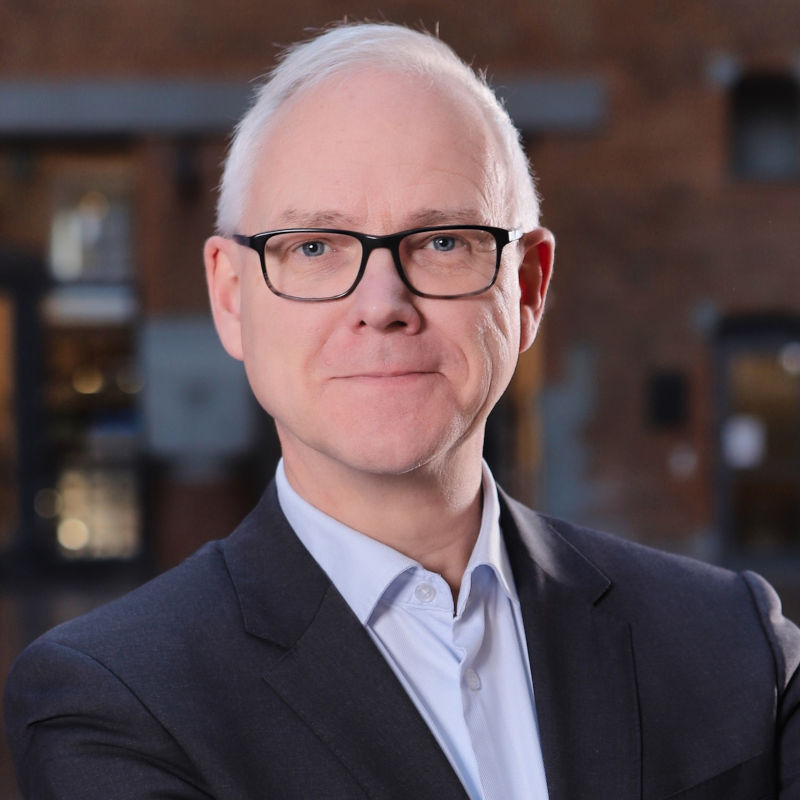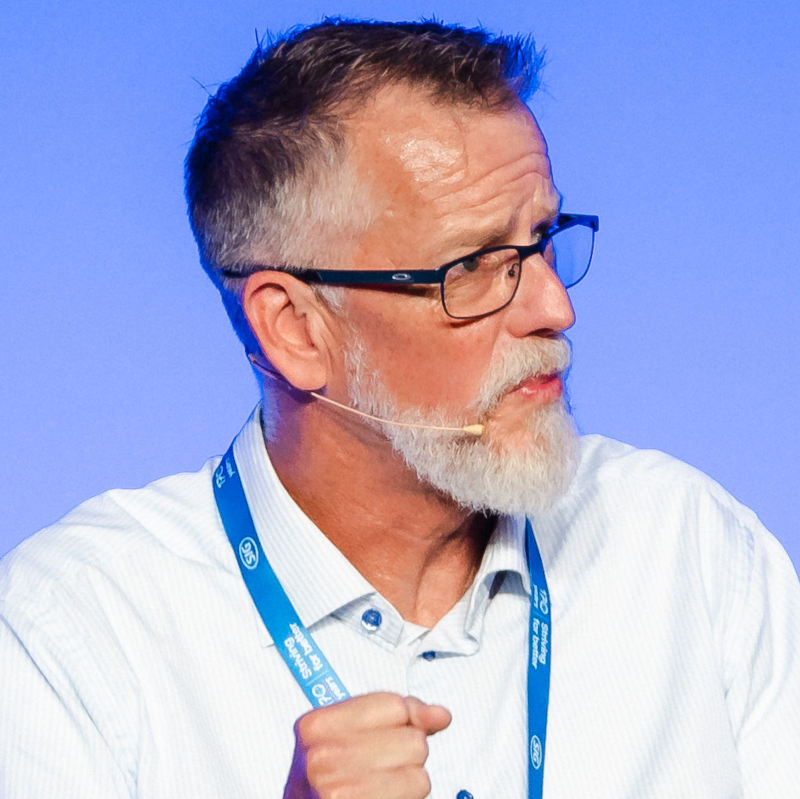Although 45% of CEOs prioritise innovation in the boardroom1, for innovation leaders it is a high-stress, high-risk career. Success is uncertain and failure is poorly tolerated. Only 49% of innovation leaders are still in post after three years – and 87.5% of those that leave go on to provide innovation for someone else2.
As cycles of competitive advantage get shorter, it is time for a closer look at the role of innovation management.
Recent research has shown it meets the ‘four tests’ of a corporate profession3, which includes a body of knowledge that can be codified and taught. Would recognition of Innovation Management as a profession – like finance, marketing or HR – create a sustainable career path? Or is true disruptive innovation leadership incompatible with current business models?

If you want to know more about this subject our online webinar “Is it time to professionalise Innovation Management” is available here. You can listen to the full discussion via a podcast on Soundcloud, and watch the presentations from our two speakers: Prof Magnus Karlsson, KTH Royal Institute of Technology, and Scott May, Head of MISTA at Givaudan.
Ahead of the webinar we asked two eminent academics Peter Robbins and Gina O’Connor to explain why innovation management is a high risk career. They will be joining the webinar.
We will be asking “Is it time to professionalise innovation management?”
We have asked two distinguished industry practitioners to provide different perspectives and invite others working in this area to provide challenge and input from business and academia.
Chair: Dr Allison Haitz, trustee of RADMA and Strategic Advisor to Venture Capital and Private Equity
Professional status brings recognition, reward, and high-quality innovation: Prof Magnus Karlsson, KTH Royal Institute of Technology, Stockholm, Sweden
Innovation leadership is in our DNA – compulsory professionalisation would stifle inspiration: Scott May, Head of MISTA at Givaudan
About the speakers:

Prof Magnus Karlsson, KTH Royal Institute of Technology, Stockholm, Sweden
Prof Karlsson is the former Director of New Business Development and Innovation in Group Function Strategy at Ericsson, the multinational networking and telecoms company. The company has continually reinvented itself during its long history, with an R&D structure on three levels to enable it to exploit and disrupt its markets.
Prof Karlsson is a firm advocate for professionalisation. He is Chairman of the Association for Innovation Management Professionals in Sweden. He has also been involved in the development and implementation of the ISO 56000 family of standards for innovation management systems since 2008.

Scott May, Head of MISTA at Givaudan
Scott is VP of Global Innovation for Givaudan, the world’s largest manufacturer of flavours, fragrances, and active cosmetic ingredients, and heads up the innovation ecosystem MISTA.
Scott defines innovation as a creating mindset, culture, and ways of working that enable a company to continuously evolve and adapt to changing conditions and opportunities, manifesting in the creation of new futures.
1 https://www.pwc.com/gx/en/issues/c-suite-insights/ceo-survey.html
2 ‘Beyond the Champion: Institutionalizing Innovation Through People’, Gina Colarelli O’Connor, Andrew C. Corbett and Lois S. Peters; https://www.sup.org/books/title/?id=26674
3 ‘The professionalization of innovation management: Evolution and implications’, Peter Robbins and Gina Colarelli O’Connor, Journal of Product Innovation Management 40(5): 593–609., https://doi.org/10.1111/jpim.12670

